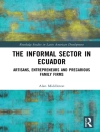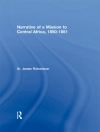Speciation analysis is a field of trace element analytical chemistry that deals with detection, identification and determination of individual chemical forms of metals and metalloids. There has been increased awareness of the importance of elemental speciation over the last 20 years and this has lead to growing demand for analytical techniques capable of providing species-specific information. Hyphenated Techniques in Speciation Analysis offers a brief but comprehensive overview of hyphenated techniques and their various applications for the determination of chemical forms of trace elements. It brings a succinct presentation of the concept of speciation analysis, gives an overview of techniques based on coupling of chromatography with element and molecule specific detection and summarises their applications in the fields of environmental and industrial chemistry, biochemistry, nutrition, toxicology and medicine. Fully referenced, Hyphenated Techniques in Speciation Analysis is an invaluable introduction to elemental speciation analysis and also provides a practising analyst with a critical overview of research carried out in the field.
Tabella dei contenuti
PART I. Principles and fundamentals; The concept of speciation analysis and hyphenated techniques; Element specific detection in chromatography; Gas chromatography with ICP MS detection; Liquid chromatography with ICP MS detection; Electrophoretic techniques with element selective detection; Electrospray mass spectrometry in elemental speciation analysis; Quality control and assurance in speciation analysis; PART II. Applications; Multielement analysis for organometallic species in the environment; Speciation of organotin compounds; Speciation of organolead compounds; Speciation of organomercury compounds; Metal speciation in petroleum-related samples; Speciation of redox states; Speciation of organoarsenic compounds in biological materials; Speciation of organoselenium compounds in biological materials; Speciation of metal-complexes in microorganisms, plants and food of plant origin; Speciation of metal complexes with metallothioneins; Speciation of metal-complexes in human body fluids and tissues; Metal speciation in pharmacology: metallodrugs; Subject index.
Circa l’autore
Prof. Joanna Szpunar (F) graduated from the Technical University of Warsaw (Poland), received her Ph D and DSc (habilitation) from the University of Warsaw (Poland) and was nominated a professor in 2007. Since 1997 she has been working at the French National Scientific Council (CNRS) laboratory in Pau, France. Her research interests concern bioinorganic speciation and nanoparticle analysis and hyphenated techniques for metallomics. Joanna Szpunar is author or co-author of a book and ca. 175 articles in international journals (H-factor 62, 9693 citations (Google Scholar 25/05/2020)) and more than 50 plenary and invited lectures at international meetings. She is Fellow of the Royal Society of Chemistry and a member of the Advisory Boards of Journal of Analytical Atomic Spectrometry, Metallomics and Separations.












